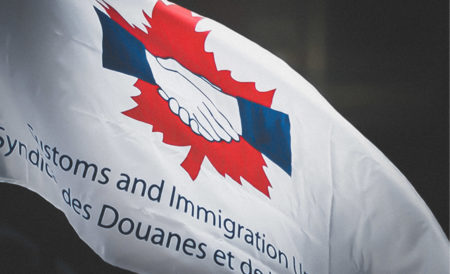PSAC has taken the first step to begin the next round of negotiations for more than 8,500 PSAC-CIU members in the FB group by serving Treasury Board with notice to bargain.
After issuing an input call for bargaining demands, the union received over 1,000 proposals from PSAC-CIU members working for the Canada Border Servies Agency (CBSA). Next month, members from every Customs and Immigration Union branch across Canada will meet in person at our national bargaining conference in Ottawa, from March 31 to April 2, to elect a bargaining team and discuss priorities for a new round of bargaining. Our initial bargaining dates will be determined soon after.
The unprecedented mobilization by FB members during our last round of bargaining was critical in securing important gains — including better protections against excessive discipline, a streamlined grievance process, and additional improvements in line with what other Canadian law enforcement agencies provide. PSAC-CIU is committed to continuing to build on these gains.
Throughout the pandemic, PSAC-CIU members at CBSA have gone above and beyond to serve Canadians and protect our borders. It’s time for the employer to recognize that dedication and hard work by making the CBSA a better and safer place to work.
Stay in touch
Please be sure to keep your contact information up to date via the member portal to receive all the latest updates as we negotiate your next contract.
If you have any questions, please contact your CIU branch president or PSAC regional office.
This article was first posted on the PSAC website.







